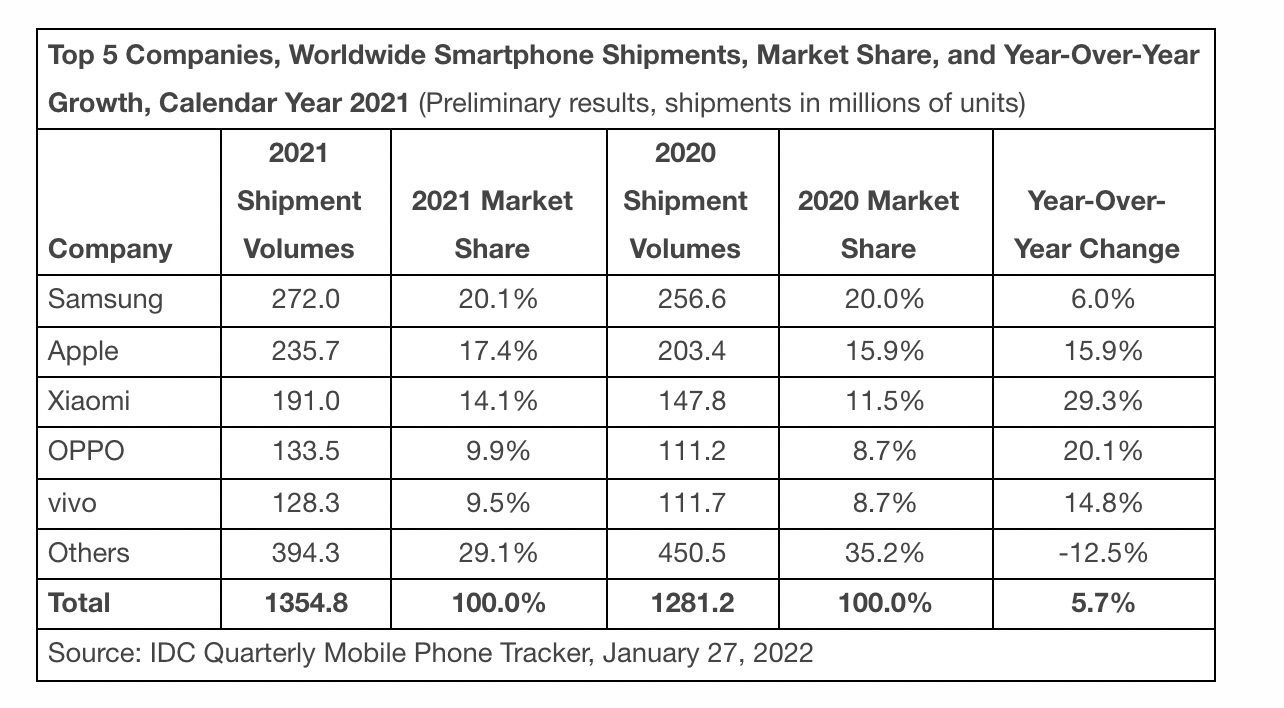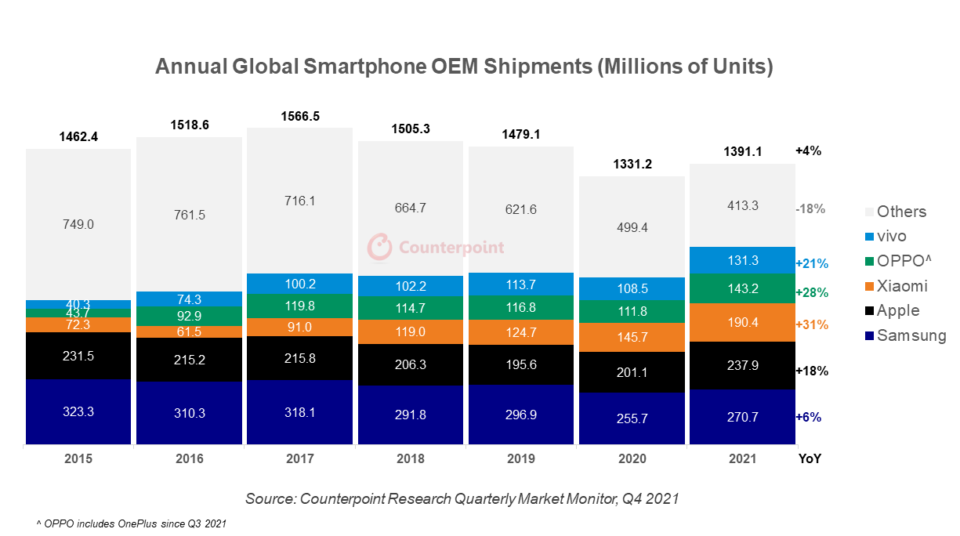Global smartphone shipments had already begun to shrink ahead of 2020, although two years of a pandemic and the resulting supply chain and chip constraints certainly didn’t help the overall figures. According to a pair of reports from Counterpoint Research other I.D.C, however, the market finally experienced growth last year for first time since 2017.
Counterpoint puts the overall year-over-year growth at 4%, with a slightly more optimistic 5.7% from IDC. Both firms, however, point to a decline for Q4, at 6% and 3.2%, respectively. The decline was to be expected, of course, given continued chip shortages, which have been having an outsized impact on smaller manufacturers with less leverage over the supply chain than firms like Apple and Samsung.
Both firms put Samsung at top spot for the year, with a 6% increase, and Apple taking the No. 2 spot. The firms also echo a recent report from Canalys that had Apple winning the quarter. Apple confirmed those sentiments with an excellent quarterly earnings report, fueled in no small part by the iPhone’s success.
Image Credits: Counterpoint Research
The company’s iPhone division experienced a 9% yoy sales growth, to $71.63 billion. CEO Tim Cook confirmed that supply chain constraints were a continued hurdle for the company, with demand outstripping supply in some markets, but added on a call that he sees issues beginning to lighten, moving forward. Such issues ultimately point to a market that would have otherwise more robustly rebounded.
“The fact that 2021 would have come in drastically higher if it were not for the supply constraints adds even more positivity to the healthy 5.7% growth we saw for 2021,” IDC research director Nabila Popal said in a release. “To me it gives a message that there is significant pent-up demand in almost all regions. Even in China, where there are some challenges around weakening consumer demand, the market performed much better in the fourth quarter than expected, 5% better to be exact, although still a year-over-year decline.”

Image Credits: I.D.C
While China continues to be hit strongly by supply chain constraints, the No. 2 and no. 3 smartphone markets experienced growth in 2021.
“Growth in the US was driven largely by demand for Apple’s first 5G-enabled iPhone 12 series seeing through to the first quarter of 2021; demand which continued throughout the year ending on a strong Q4 thanks to Black Friday and holiday season promotions,” said Counterpoint analyst, Harmeet Singh Walia. “India, too, had a good year due to higher replacement rates, better availability and more attractive financing options in mid-to high-tier phones.”
After nearly a decade of strong growth, a decline in demand grew prior to the pandemic, owing to slowed upgrade cycles, high prices and market saturation. COVID-19 further fueled the slowdown as consumers were less willing to spend. Those issues were further exacerbated by supply chain issues, though pent-up demand and things like 5G have once again spurred interest, though overall shipments still remain below pre-pandemic levels.
